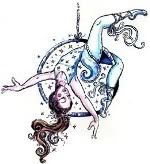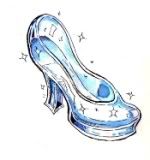So I am writing from my dorm room in Anchorage, tired after days of reading student work and leading workshops (my first! Monday I co-led one with Jo-Ann Mapson, yesterday I led one alone) and giving talks (one so far, a "craft talk" on retelling fairy tales) and, last night, giving a reading to the public--and I will write about that later, about how cool the reading was, how I was paired with another new faculty member Craig Childs, who was AMAZING....--and there are readings every night of this program, every night from 8 to 9:30pm, and I have not been to so many readings in so little time ever... and then the days are filled with talks and workshops and panels and lunches and dinners and I am going to them all--well, almost--and getting to know everyone and I would say more than half of these students are coming from various parts of Alaska and they tell me about mushers and dogsleds and native villages and tundra and abandoned railroads and it is all SUPER COOL and I LOVE EVERYONE or at least LOTS OF THEM and that is a lot of love and it is exhausting.
SO really, before falling into bed right now at 9:30pm when it is still broad daylight and will be for another couple of hours, I just wanted to quickly copy in this little snippet of writing from Anne Dillard that the wondrous Judith Barrington, who is faculty here, read to us in her talk this morning, which was about memoirs and ghosts.
I was blown away.
Listen:
I was running down the Penn Avenue sidewalk, revving up for an act of faith. I was conscious and self-conscious. I knew well that people could not fly--as well as anyone knows it--but I also knew the kicker: that, as the books put it, with faith all things are possible.
Just once I wanted a task that required all the joy I had. Day after day I had noticed that if I waited long enough, my strong unexpressed joy would dwindle and dissipate inside me, over many hours, like a fire subsiding, and I would at last calm down. Just this once I wanted to let it rip. Flying rather famously required the extra energy of belief, and this, too, I had in superabundance.
There were boxy yellow thirties apartment buildings on those Penn Avenue blocks, and the Evergreen Café, and Miss Frick's house set back behind a wrought-iron fence. There were some side yards of big houses, some side yards of little houses, some streetcar stops, and a drugstore from which I had once tried to heist a five-pound box of chocolates, a Whitman sampler, confusing "sampler" with "free sample." It was past all this that I ran that late fall afternoon, up old Penn Avenue on the cracking cement sidewalks--past the drugstore and bar, past the old and new apartment buildings and the long dry lawn behind Miss Frick's fence.
I ran the sidewalk full tilt. I waved my arms ever higher and faster; blood balled in my fingertips. I knew I was foolish. I knew I was too old really to believe in this as a child would, out of ignorance; instead I was experimenting as a scientist would, testing both the thing itself and the limits of my own courage in trying it miserably self-conscious in full view of the whole world. You can't test courage cautiously, so I ran hard and waved my arms hard, happy.
Up ahead I saw a business-suited pedestrian. He was coming stiffly toward me down the walk. Who could ever forget this first test, this stranger, this thin young man appalled? I banished the temptation to straighten up and walk right. He flattened himself against a brick wall as I passed flailing--although I had left him plenty of room. He had refused to meet my exultant eye. He looked away, evidently embarrassed. How surprisingly easy it was to ignore him! What I was letting rip, in fact, was my willingness to look foolish, in his eyes and in my own. Having chosen this foolishness, I was a free being. How could the world ever stop me, how could I betray myself, if I was not afraid?
I was flying. My shoulders loosened, my stride opened, my heart banged the base of my throat. I crossed Carnegie and ran up the block waving my arms. I crossed Lexington and ran up the block waving my arms.
A linen-suited woman in her fifties did meet my exultant eye. She looked exultant herself, seeing me from far up the block. Her face was thin and tanned. We converged. Her warm, intelligent glance said she knew what I was doing--not because she herself had been a child but because she herself took a few loose aerial turns around her apartment every night for the hell of it, and by day played along with the rest of the world and took the streetcar. So Teresa of Avila checked her unseemly joy and hung on to the altar rail to hold herself down. The woman's smiling, deep glance seemed to read my own awareness from my face, so we passed on the sidewalk--a beautifully upright woman walking in her tan linen suit, a kid running and flapping her arms--we passed on the sidewalk with a look of accomplices who share a humor just beyond irony. What's a heart for?
SO really, before falling into bed right now at 9:30pm when it is still broad daylight and will be for another couple of hours, I just wanted to quickly copy in this little snippet of writing from Anne Dillard that the wondrous Judith Barrington, who is faculty here, read to us in her talk this morning, which was about memoirs and ghosts.
I was blown away.
Listen:
I was running down the Penn Avenue sidewalk, revving up for an act of faith. I was conscious and self-conscious. I knew well that people could not fly--as well as anyone knows it--but I also knew the kicker: that, as the books put it, with faith all things are possible.
Just once I wanted a task that required all the joy I had. Day after day I had noticed that if I waited long enough, my strong unexpressed joy would dwindle and dissipate inside me, over many hours, like a fire subsiding, and I would at last calm down. Just this once I wanted to let it rip. Flying rather famously required the extra energy of belief, and this, too, I had in superabundance.
There were boxy yellow thirties apartment buildings on those Penn Avenue blocks, and the Evergreen Café, and Miss Frick's house set back behind a wrought-iron fence. There were some side yards of big houses, some side yards of little houses, some streetcar stops, and a drugstore from which I had once tried to heist a five-pound box of chocolates, a Whitman sampler, confusing "sampler" with "free sample." It was past all this that I ran that late fall afternoon, up old Penn Avenue on the cracking cement sidewalks--past the drugstore and bar, past the old and new apartment buildings and the long dry lawn behind Miss Frick's fence.
I ran the sidewalk full tilt. I waved my arms ever higher and faster; blood balled in my fingertips. I knew I was foolish. I knew I was too old really to believe in this as a child would, out of ignorance; instead I was experimenting as a scientist would, testing both the thing itself and the limits of my own courage in trying it miserably self-conscious in full view of the whole world. You can't test courage cautiously, so I ran hard and waved my arms hard, happy.
Up ahead I saw a business-suited pedestrian. He was coming stiffly toward me down the walk. Who could ever forget this first test, this stranger, this thin young man appalled? I banished the temptation to straighten up and walk right. He flattened himself against a brick wall as I passed flailing--although I had left him plenty of room. He had refused to meet my exultant eye. He looked away, evidently embarrassed. How surprisingly easy it was to ignore him! What I was letting rip, in fact, was my willingness to look foolish, in his eyes and in my own. Having chosen this foolishness, I was a free being. How could the world ever stop me, how could I betray myself, if I was not afraid?
I was flying. My shoulders loosened, my stride opened, my heart banged the base of my throat. I crossed Carnegie and ran up the block waving my arms. I crossed Lexington and ran up the block waving my arms.
A linen-suited woman in her fifties did meet my exultant eye. She looked exultant herself, seeing me from far up the block. Her face was thin and tanned. We converged. Her warm, intelligent glance said she knew what I was doing--not because she herself had been a child but because she herself took a few loose aerial turns around her apartment every night for the hell of it, and by day played along with the rest of the world and took the streetcar. So Teresa of Avila checked her unseemly joy and hung on to the altar rail to hold herself down. The woman's smiling, deep glance seemed to read my own awareness from my face, so we passed on the sidewalk--a beautifully upright woman walking in her tan linen suit, a kid running and flapping her arms--we passed on the sidewalk with a look of accomplices who share a humor just beyond irony. What's a heart for?



<< Home